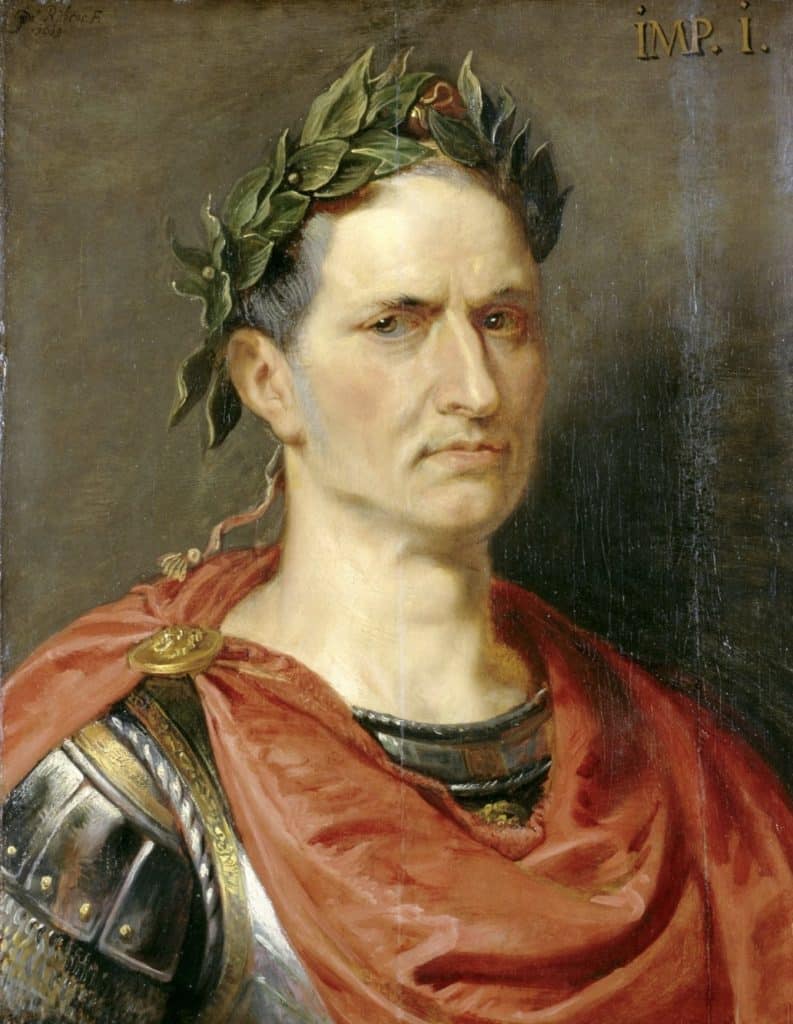
Julius Caesar 100 BCE – 44 BCE
Julius Caesar was born on July 13, 100 BCE (according to the Julian calendar) into a patrician family in Suburra, Italy. His full name was Gaius Julius Caesar. He began his political career in the Roman Senate where his political skills and charisma enabled him to rise quickly through the ranks and gain control of the military. In 60 BC, Caesar, Crassus and Pompey formed an informal political alliance, known as the First Triumvirate, that gradually gained control of politics in the Roman Republic. Cato the Younger and Cicero attempted to block the Triumvirate’s acquisition of absolute power, but Julius Caesar had won the support of the Roman public through his military prowess in a string of victories in the Gallic Wars between 58 and 51 BCE, extending Roman territory into France, Belgium and later into Britain.
Though these achievements had won Caesar the support of his veteran army, Pompey, had surreptitiously realigned himself with the Senate, and after Crassus died in 53 BCE, the Senate ordered Caesar to step down from his military command and return to Rome. In 49 BC, Caesar defied the Senate’s authority by crossing the Rubicon River, that represented the northern border of Rome, and marching towards Rome as the head of an army. This launched a civil war which Caesar and his supporters won, leaving him in a position of near-unchallenged power and influence in 45 BC.
After assuming control of government, Caesar began a program of social and governmental reforms, including the creation of the He centralized the bureaucracy of the Republic and was eventually proclaimed “dictator for life” (dictator perpetuo).
During his rule, Caesar implemented a series of political and social reforms aimed at improving the lives of Roman citizens. He introduced measures to alleviate debt, reformed the calendar (creating the Julian calendar, which is the precursor to the modern Gregorian calendar), and initiated various public works projects to provide employment and infrastructure development.
His populist and authoritarian reforms angered the elites, who began to conspire against him. On the Ides of March (15 March) 44 BC, Caesar was assassinated by a group of senators led by Brutus and Cassius, who stabbed him to death, launching a new civil war, ending forever the constitutional government of the Republic of Rome. Caesar’s great-nephew and adopted heir Octavian, later known as Augustus, subsequently defeated the rival army of Mark Anthony and Octavian consolidated his power, later becoming the first Emperor of the newly formed Roman Empire.
Historians regard Julius Caesar as one of the greatest military leaders of all time.
